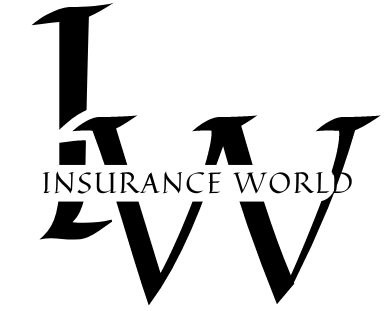Introduction:
In an era where healthcare costs continue to rise, and medical emergencies can strike unexpectedly, having adequate health insurance is paramount. Health insurance not only provides access to essential medical services but also offers financial protection against the high costs of healthcare. However, navigating the complexities of health insurance can be overwhelming. In this comprehensive guide, we’ll delve into everything you need to know about health insurance, from understanding the basics to choosing the right coverage to meet your healthcare needs.
- Understanding Health Insurance:
- Health insurance is a type of coverage that pays for medical and surgical expenses incurred by the insured. It acts as a financial safety net, helping individuals manage the high costs of healthcare services.
- Health insurance plans vary in terms of coverage, cost, and provider networks. Common types of health insurance include employer-sponsored plans, individual or family plans, government-funded plans like Medicare and Medicaid, and marketplace plans available through the Affordable Care Act (ACA) exchanges.
- Health insurance coverage typically includes benefits such as doctor visits, hospital stays, prescription medications, preventive care, and emergency services.
- Types of Health Insurance Plans: a. Health Maintenance Organization (HMO):
- HMO plans require members to choose a primary care physician (PCP) who coordinates all of their healthcare needs.Members must obtain referrals from their PCP to see specialists or receive non-emergency medical care.HMO plans often have lower premiums and out-of-pocket costs but may offer less flexibility in choosing healthcare providers.
- PPO plans offer more flexibility in choosing healthcare providers and do not require referrals to see specialists.Members can see any provider within the PPO network or go out-of-network, although out-of-network care may result in higher out-of-pocket costs.PPO plans typically have higher premiums and out-of-pocket costs compared to HMO plans but offer greater flexibility and choice.
- EPO plans combine elements of both HMO and PPO plans, offering a network of preferred providers without requiring referrals for specialist care.Members must use providers within the EPO network to receive coverage, except in emergencies.EPO plans may have lower premiums and out-of-pocket costs compared to PPO plans but offer less flexibility in provider choice.
- HDHPs have higher deductibles and lower premiums than traditional health plans.
- Members can contribute to an HSA, a tax-advantaged savings account used to pay for qualified medical expenses.
- HDHPs are often paired with HSAs to help individuals save for healthcare costs while providing financial protection against catastrophic expenses.
- Key Components of Health Insurance Coverage:
- Premiums: The amount you pay for health insurance coverage, usually on a monthly basis.
- Deductible: The amount you must pay out-of-pocket for covered services before your insurance starts to pay.
- Coinsurance: The percentage of costs you are responsible for paying after meeting your deductible.
- Copayments: Fixed amounts you pay for certain covered services, such as doctor visits or prescription medications.
- Out-of-Pocket Maximum: The maximum amount you have to pay for covered services in a plan year, after which your insurance pays 100% of covered costs.
- Benefits of Health Insurance:
- Access to Healthcare: Health insurance provides access to essential medical services, including preventive care, screenings, treatments, and medications.
- Financial Protection: Health insurance helps protect individuals and families from the high costs of healthcare, reducing the risk of medical debt and bankruptcy.
- Peace of Mind: Knowing that you have health insurance coverage can provide peace of mind, allowing you to focus on your health and well-being without worrying about financial burdens.
- Choosing the Right Health Insurance Plan:
- Assess Your Healthcare Needs: Consider factors such as your health status, age, family size, and anticipated medical expenses when choosing a health insurance plan.
- Compare Plan Options: Evaluate different health insurance plans based on premiums, deductibles, copayments, provider networks, and coverage benefits.
- Consider Additional Benefits: Look for health insurance plans that offer additional benefits such as wellness programs, telemedicine services, and prescription drug coverage.
- Review Network Providers: Ensure that your preferred healthcare providers, including doctors, specialists, hospitals, and pharmacies, are included in the plan’s network.
- Estimate Total Costs: Calculate the total cost of each health insurance plan, including premiums, deductibles, copayments, and coinsurance, to determine which plan offers the best value for your healthcare needs.
- Understanding Health Insurance Terminology:
- Network: A group of healthcare providers, facilities, and pharmacies that have contracted with an insurance company to provide services to plan members.
- Formulary: A list of prescription medications covered by a health insurance plan and their associated costs.
- Prior Authorization: A process by which an insurance company reviews and approves certain medical services or medications before they are provided to ensure they meet coverage criteria.
- Explanation of Benefits (EOB): A statement sent by an insurance company to a policyholder detailing the costs and payments for healthcare services received.
Conclusion:
Health insurance is an essential tool for protecting your health and financial well-being. By understanding the basics of health insurance, exploring different plan options, and choosing the right coverage to meet your healthcare needs, you can ensure that you and your family have access to quality healthcare services without facing significant financial burdens. Take the time to evaluate your healthcare needs, compare plan options, and select the health insurance coverage that provides the best value and peace of mind for you and your loved ones. With the right health insurance in place, you can nurture your well-being and focus on living a healthy and fulfilling life.

